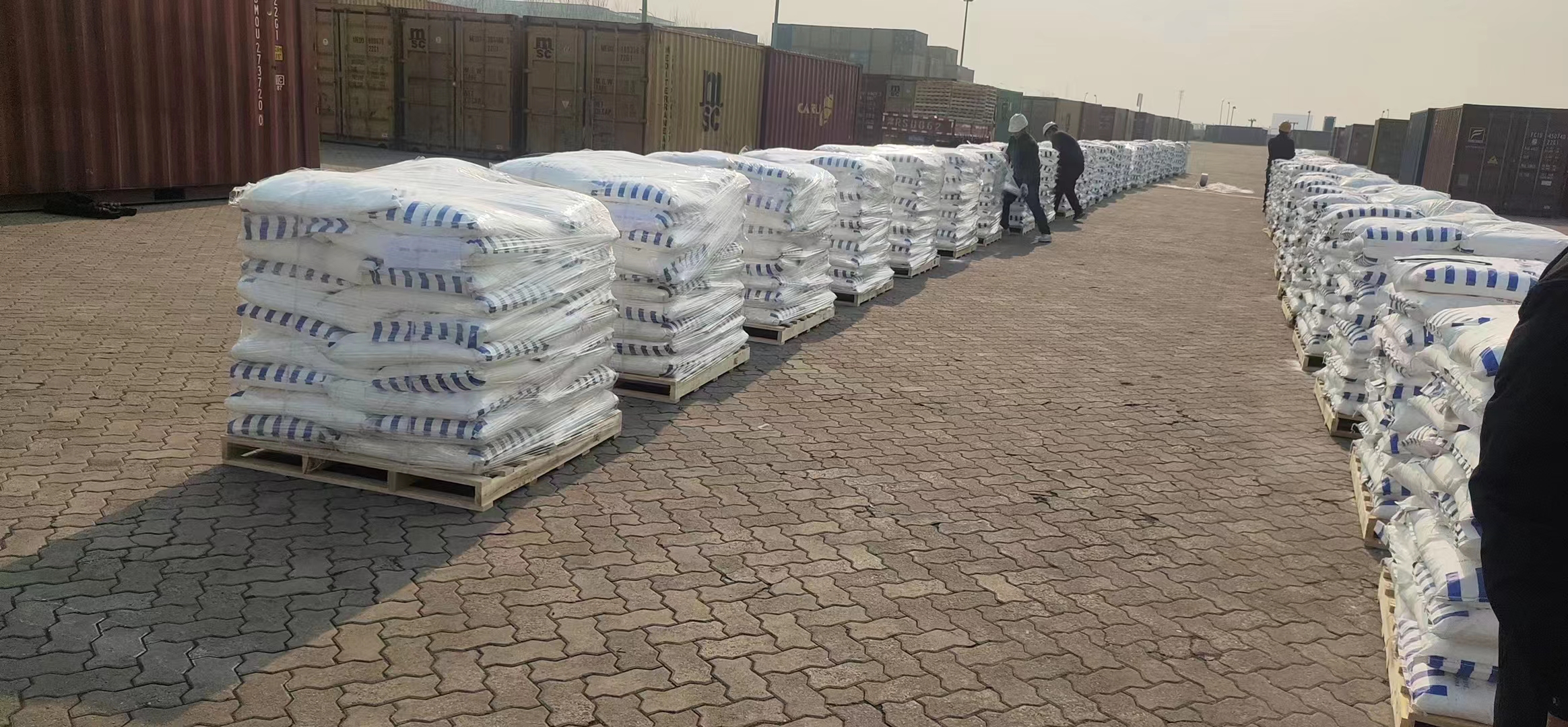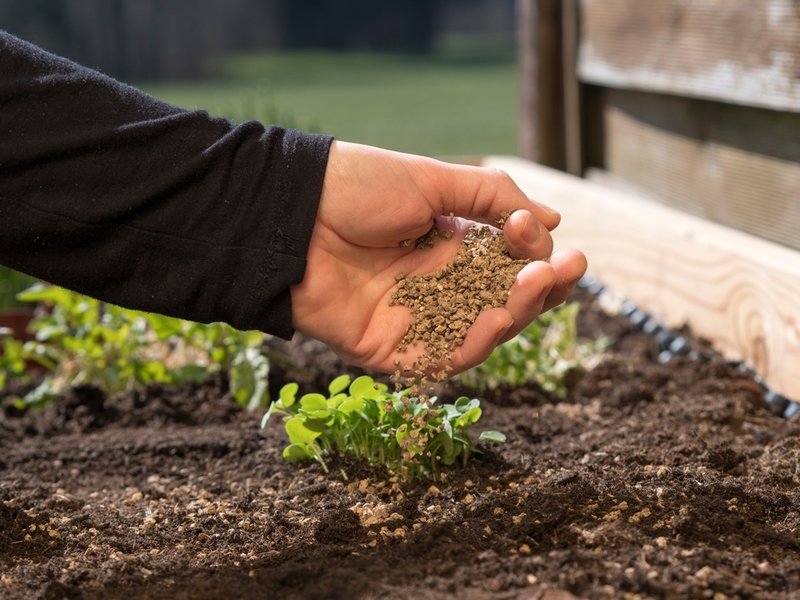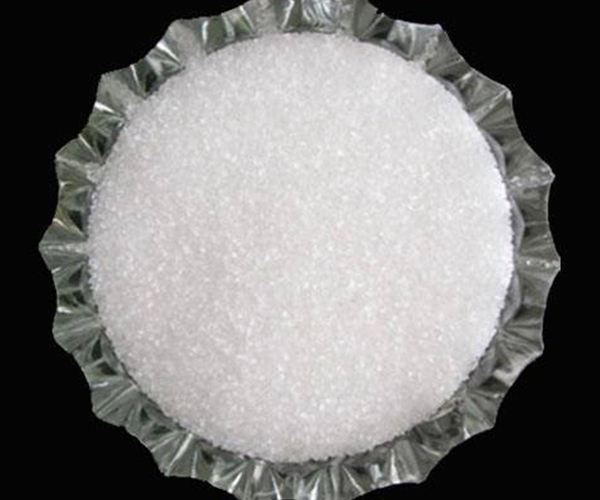Introduction to Organic Fertilizers for Soil Improvement
Organic fertilisers are an important component of the toolkit of sustainable agriculture. They provide a biological means of semi-artificially improving soil health and crop output. Organic fertilisers are derived through the biological, material or chemical breakdown of a natural material such as plants, animals or minerals into an easily assimilated form. These fertilisers are distinguished, in the context of current agricultural methods, by their ability to enrich the soil in a way that is beneficial to the environment and conducive to long-term agricultural productivity.
Definition and Importance: Organic fertilisers refer to a wide variety of naturally occurring materials that add nutrients to the soil for the growth of plants. In contrast to synthetic fertilisers, organic fertilisers are argued to be more natural as they originate from natural organic sources, and they actively decompose in soils. Dr Elaine Ingham, an expert in soil biology, advises that ‘organic fertilisers provide slow-release nutrients to help improve soil fertility and soil structure, keeping our soils from washing nutrients and chemicals into our waterways’.
Contribution to Soil Health: By cultivating healthy soil with organic fertiliser, farmers will improve water retention and support a greater diversity of soil organisms, both essential goals for sustainable agriculture. ‘Organic fertilisers create healthier soil food webs that are capable of strong plant growth with less chemical inputs,’ says Dr Ingham.
Multiple Benefits to Soils: There are numerous benefits from using organic materials to improve soils. Organic fertilisers not only replace nutrients lost from soils but also “glue” soil particles into aggregates and increase a soil’s ability to hold air and water. Because the organic matter in the resulting soil replaces what is used by crops for growth, these fertilisers boost the population of microorganisms that cycle these nutrients. As Ingham points out: ‘Increasing soil health [from organic fertilisers] increases the inherent fertility of that soil, increasing its capacity to produce and sustain life over time.
In summary, organic fertilisers are the key to the green farming, which provide a solution not only to provide nutrients to soil, but also make the soil healthier and prevent climatic oscillations. With planetary problems growing, a lot of brains have come together to find solutions to food security and earth sustainability. Organic fertilisers play an important role in the process of reviving the earth towards sustainability in an agricultural point of view.
Types of Organic Fertilizers Used for Soil Improvement
Organic fertilizers are used by people to improve their soil. and present 2 different types of organic fertilizers
Compost is decomposed organic matter, from kitchen and garden waste that has been buried in a pile to break down. Full of beneficial microbes, its nutrient content and soil structure and aeration can be enhanced by simply adding more food scraps. ‘Because they are rich in organic material, composts act as a vegetative soil conditioner, and provide protection against soil erosion as well as weeds,’ says Stevens. It’s a great way to reintegrate waste matter back into the soil. If uncovered, a bare piece of ground could receive a whiskey rainstorm in 30 seconds, so every spot of earth needs compost and mulch Green manure is the leftovers of plants grown to be subsequently ploughed into the field.
‘They hasten the breakdown of nutrients in soil and prevent erosion and weeds simultaneously as they provide a surface cover and physical protection,’ says Stevens. To ‘fix’ nitrogen from the atmosphere into compostable organic material that can retain our plants, green manure crops have to be nitrogen-fixing legumes such as fenugreek, vetch, lucerne, nagari and cowpeas.
Mineral-based Organic Additives: Natural mineral components of soil are used here, including the important natural stimulant of lime, which regulates soil pH to lessen acidity, thereby increasing the availability of nutrients to plant life. Among the most significant of the mineral additives is gypsum (calcium sulfate), which provides calcium and sulphur, both of which are important nutritional elements that help promote primary root development and correlate to overall plant longevity and vitality. ‘Lime and gypsum can be critical in growing zones with extreme soil acidity, and also where you might want to improve structure, without increasing additional phosphorus levels,’ says Stevens.
Using these organic fertilisers helps improve soil health and fertility, and ultimately plant growth and productivity. Compared with their inorganic counterparts, organic fertilisers are generally less toxic, more sustainable and better for plants, water and the environment. But the term ‘organic fertilisers’ is quite vague. In reality, it comprises a wide range of different fertilisers with vastly different properties and benefits. These range from relatively simple, shortchained molecules to complex or even living, dynamic systems of microbes. Understanding the properties of these various fertilisers can help farmers and gardeners know when, where and why to use them.

Mechanisms of Soil Improvement Using Organic Fertilizers
Organic fertilisers improve the soil health via diverse mechanisms, all producing more sustainable agriculture through enhanced nutrient availability, soil structure and biological activity.
Nutrient supply. Organic fertilisers contain nutrients that plants use in their growth process. Generally, they will contain the three main nutrients needed for healthy plant growth: nitrogen, phosphorus and potassium as well as trace elements such as calcium and magnesium. The nutrients are not readily available like synthetic fertilisers but slowly leach into the soil releasing them as needed. This prevents biological pollution and avoids degradation of soil properties by reducing nutrient runoff. The organic fertilisers supply available nutrients to the soil slowly, releasing them as plants need them without providing the flushes that are associated with synthetic fertilisers.
‘Organic fertiliser is decomposed in time and nutrients will become available in a manner in which plants can utilise more effectively, without the peaks and troughs that are experienced when using synthetic fertilisers. Less is more when using organic fertilisers and this is how they enhance growth without peaks and troughs in fertility potential,’ says Dr Elizabeth Roberts, an expert in soil science from the University of Reading.
Soil Structure Enhancement: By adding organic matter to the soil, organic fertilisers improve the structure of the soil. This is because of the increased organic matter content that help the particles to bind together into aggregates, enhancing aeration and water infiltration and retention, and preventing erosion and compaction, making the agricultural soil more resilient to adverse weather conditions. Dr Roberts continues: ‘One of the important ways organic fertiliser can help the plants is through an increase of soil organic matter that is the difference between a soil full of aggregates to bind the particles all together and a dust that blows away in the wind.
Microbial Activity Stimulation Of all the benefits of using organic fertilisers, the enhancement of soil microbiology is one of the most notable. Organic mater provides food for a diverse community of soil organisms, from all kinds of bacteria and fungi to numerous species of earthworms, which work in a sort of nursery to recycle nutrients and help decompose organic matter into humus. The presence of all these organisms maintain healthy soils, assisting with the breakdown of organic matter, improving soil structure and fostering fertility. ‘The enhanced microbial activity helps to convert and release nutrients that are otherwise not available to plants and enhance a balanced, self-sustaining equilibrium in the soil,’ Roberts explains.
Practical Application of Organic Fertilizers for Optimal Soil Health
Applying the fertilisers in an organic manner can help to maximise their benefits to the soil, and also make sure that sustainable agriculture is not compromised on the field.
Best practices for each class of organic fertilisers The best fertiliser for the soil and the particular crops you’re growing should be selected – eg, manure is good for soil structure and adds nutrients of a wide range of elements, but it must be properly composted to eliminate zoonotic pathogens and other human risks. Soil-improving additives such as compost are palatable if they have a high organic matter content as these can improve soil moisture-holding capacity and enhance the microbial biomass.
For mineral-based amendments, application must be calibrated to soil pH and available minerals (eg, alkaline or acidic soil may require lime or sulfur respectively, but such additions must be made cautiously so as not to over-line because liming disinfects the soil; similarly, if you have a particularly rich soil, apply a lower rate than normal to avoid excessive sulfur addition that could tie up phosphorus).
Seasonal Considerations and Application Rates: the time of application can be as important as applying fertiliser itself. Fall applications can serve to build soil fertility to be used the next growing season, if the nutrients are applied during leaf senescence. Then the nutrients can integrate into the soil over the winter. Spring applications of fertilisers can be advantageous to give new growth nutrients ASAP. Emphasise to students that amount of application should be calculated from soil testing and be administered at the right rate to not create problems with nutrient runoff and environmental pollution.
Consistent with Ecological Food Webs The most efficient way to utilise organic fertilisers is to combine them with other sustainable farming practices that also work consistently with ecological food webs. Practices such as crop rotation, in which different crops are grown in lateral rotation, can enhance plant biodiversity while helping to prevent pest build-ups and nutrient depletions. Cover cropping involves growing plants and plants between seasonal harvests in order to protect the soil surface. Crops kill and/or decompose cover crops and return nutrients to the soil, thereby improving its structure and health. Reduced tillage, in which outdoor planting soil is minimised, is another practice that helps to preserve soil structure while leaving natural soil biota intact.
As the soil health scientist Susan Webber has advised: ‘Integration of organic fertilisers with these other sustainable farming practices would not only help enhance soil health but also help move towards a more resilient farming system that can better face the evolving vagaries of climate variability.’
Applying them, however, farmers optimise the health of their soil, keeping it robust and fruitful in the years to come. The key to using organic fertilisers in agriculture is to do it with thought and care.
Challenges and Solutions in Using Organic Fertilizers for Soil Improvement
The shift to improving the soil with organic fertiliser isn’t easy – there are challenges – but an innovation strategy coupled with smart planning can mitigate most of those, making the societal shift to ecological agriculture a bit less daunting.
Common Challenges:
Variability in nutrient composition: Because organic fertilisers are derived from natural sources, they can vary in nutrient composition, making it difficult for farmers to determine their effectiveness and plan activities accordingly.
Supply problems: High quality organic fertilisers may not be readily available, for example in areas that are transitioning to organic agriculture, or in cities far from agricultural zones.
Knowledge and Training: It is not uncommon for farmers to switch to organic fertiliser with very little understanding of how best to apply it, or how it fits into a system of other sustainable farming practices.
Strategic Solutions:
Educational Programmes: Educating farmers on the benefits of and how to use organic fertilisers: You can organise workshops that teach farmers the importance of soil fermentation, and how it is best to use the resulting biofertilisers. You can promote extension services or provide them yourself. You can also facilitate online courses. 3. What technical support can be given to help farmers learn how to use them?
Local production and local initiatives:Encourage local production of organic/sustainable fertilisers Commercial fertiliser sourcing is often an issue so local production can contribute to food security. Community composting programmes can serve as sources of organic fertilisers while also aiding in the management of organic waste.
Regulatory Support and Incentives: Government subsidies for organic fertilisers can provide further inducement for farmers to transition to organic farming. These incentives include grants, tax exemptions or assistance that support farmers in transitioning by providing monetary or technical support that can offset the costs associated with this shift.
Future Trends:
Technological Developments: continuous research to decrease cost of production and increased effectiveness of organic fertilizers is underway through formulation bringing uniformity in nutrient content.
Market for organic fertilisers: Due to the increasing demand of organic foods in the market, it can be expected that demand of organic fertilisers might progress in the future. As a result, the availability of fertilisers in the market will increase and prices might go down.
If these challenges are handled with proactive, informed actions and strategies, organic fertilisers will be more widely adopted, and the immense, global benefits from improved soil health and sustainable agriculture will take shape. This will be good for people, good for nature and good for farming.

Case Studies and Success Stories
Thousands of case studies from farms all over the world show the results of restoring soil fertility by using organic fertilisers.
Case Study 1: Small Farms in Rural Kenya: Smaller-scale farmers in rural Kenya are increasing soil fertility and water retention for maize crops. Organic fertilisers such as compost and animal manure have boosted maize yields and improved food security. Soil fertility-related training and extension services are offered by agricultural extension services. Farmers built compost heaps using available organic waste on farm. The farmer reported higher yields and improvements in food security, with lower costs compared with chemical fertilisers. NEW: Developed 2020 by The Companion Journal.
Case study 2: Wine grape vineyards of California, USA: Soil organic matter was built up in the wine country of California over the past years due to a growing trend of organic viticulture where more vineyards are using organic fertiliser inputs, such as compost tea and green manure, to enrich the soil and to develop healthy grapes of high yield and quality. On a long-term basis using the organically fertilised soils, there are fewer problems with vineyard pests and diseases, and vines are more drought-resilient and yielding higher quality grapes, according to testimonials from vineyard managers.
3. Large-scale rice production in river basins in India. About 4,000 ha of rice paddies are now enriched with green manure from leguminous plants (who fix the nitrogen in the soil). The practice is undertaken by thousands of local farmers with support of the government with effect from 2004. It helped to work on soil health with significant improvement in the nitrogen content of the soil, decrease in synthetic fertilisers use, and yield of rice up to 20 per cent. This is only the beginning of large-scale transformations to come in Indian rice paddies.
Lessons Learned: These case studies demonstrate that:
Education and community engagement are crucial in promoting the adoption of organic fertilizers.
Local adaptation of practices means that organic fertilisers will be used in a way appropriate to local conditions.
Although organic fertiliser promotion programmes can have a high chance of success, it helps enormously if they are backed up by research and government initiatives.
These examples show convincingly that the use of organic fertilisers can make soils healthier and increase agricultural productivity and can be emulated in many other regions with different farming systems.
Conclusion: The Future of Soil Management with Organic Fertilizers
Sustainable soil management through the use of organic fertilizers is not only a positive contribution to today’s agriculture but also a cornerstone of the future of agriculture. Global trends as well as research provide convincing evidence that organic fertilisers are a crucial component of improving soil health, increasing crop yields and enhancing environmental sustainability.
In summary, organic fertilisers enhance soil management through increased soil structure and nutrient use efficiency, and promote a healthy soil food web with a high biomass of beneficial microbes. All this results in stronger, more resilient plants with improved agricultural production. From an environmental perspective, organic fertilisers reduce chemical runoff into surface waters, and promote the sequestration of more soil carbon – both major contributions to global goals of mitigating climate change and conserving natural resources.
They will be crucial in the quest for a sustainable agriculture because they have the power to bring soil back to life, creating the conditions for food to grow freely from it. And that vision offers to mobilise the power of nature itself in the service of agriculture, so that humans can live sustainably with each other and within the natural resources of their planet, drawing no more from it than future generations can replace, and giving back as much as we draw so that future generations can do so too. The future for our earth, our soil, and our food must include a more intelligent manipulation of nature, mobilising every possible natural solution for sustainability in agriculture and for humanity.
Here are some authoritative resources on using organic fertilizer for soil improvement that you can explore for detailed information:
- NCBI (National Center for Biotechnology Information): This platform offers extensive databases and publications related to biotechnology and bioinformatics, including research on the genomic effects of organic fertilizers on soil microbes and plant health. It’s a valuable resource for in-depth scientific studies and data related to the biological impact of organic fertilizers on soil ecosystems.
- Gene Expression Omnibus (GEO) at NCBI: GEO is a database repository that collects and freely distributes high-throughput molecular data sets, such as microarray, next-generation sequencing, and other forms of genomic data. While primarily focused on gene expression data, GEO can include studies on the effects of organic fertilizers on plant gene expression, providing insights into how these fertilizers affect plant physiology at the molecular level.







